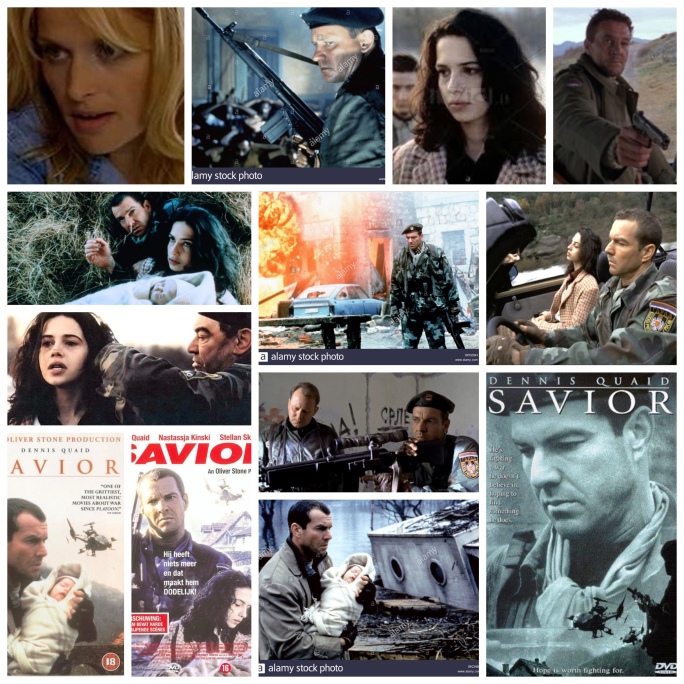
Savior is not an easy film to watch. At times it’s downright excruciating. But it’s also beautiful, and takes its subject matter very, very seriously, with not a cliche in sight for the entire duration, one of the reasons it’s my favourite war film. Dennis Quaid is mostly known for the charming, roguish way he has about him and that unmistakable mile wide grin, but here he drops all of that for a solemn, tortured turn that leaves your heart in a vice grip and your hands gripping the chair. He plays plays a military man forced to go mercenary in the French foreign legion after his wife (Nastassja Kinski) and young son are murdered in a radical terrorist bombing. His knee-jerk reaction is to walk down the street to the nearest mosque and shoot everyone in the place to death, so naturally he kind of has to lay low after. Fate finds him working freelance in the horrors of the Serbian Bosnian war circa mid nineties, and it’s there the film becomes a deep, challenging, distressing but necessary portrait of the kind of chaos, both physical and psychological, that war leaves in its wake. Tasked with transporting a Bosnian girl (Natasa Ninkovic) who was impregnated by a man on the other side of the conflict and has now been shunned, he’s faced with a shot at doing something kind to combat the tide of horror and perhaps find his retribution. In a time of such rampant, normalized genocide, he takes a stand for one mother and her child, trying to get them safely to the UN and find a little solace for himself while he’s at it. It’s an interesting character and Quaid plays him brilliantly but close to the chest. Early on we see him absentmindedly gun down a young boy herding goats, a harsh and seemingly inexplicable action. Later on he defends innocents against slaughter, but he’s not a hero so much as he is a malleable, realistic human being who makes choices just like anyone, and war sometimes brings out extremes in people that go both ways. This is unlike any other war film; there are no orchestral heroics, no ponderous meandering, no large scale epic battles to flash the budget. This is the frank, blunt force trauma vision of the genre, and Quaid is the perfect haunted, bitter hearted antihero to populate it and find the dormant humanity residing in himself even in a region that has so badly lost its way. Genocide is depicted later on in the film and it’s a fucking harrowing thing to witness, the perpetrators matter of factly bludgeoning villagers to death along a river, the victims relegated to a resolute shell shock, it’s nothing like usual melodrama employed in these scenes elsewhere. Stellan Skarsgard makes a quick and welcome appearance as his partner and fellow mercenary who himself has had just about all he can take of war, but it’s Quaid and Ninkovic’s show mostly and they’re captivating. The Bosnian war isn’t one you hear about often in films but it was one of the worst, and the fact that director Peter Antonijevic was a real life political prisoner during this time gives it all an eerily authentic edge. Not a film you hear about very often when discussing war in cinema, but one of the very best you’ll find.
-Nate Hill
